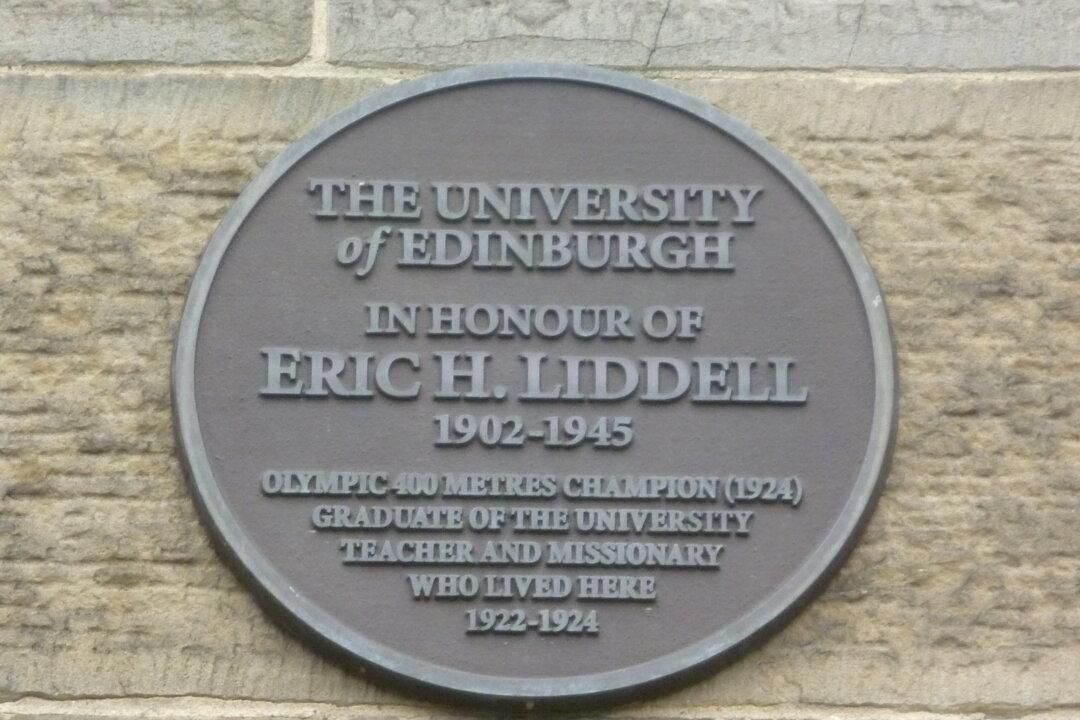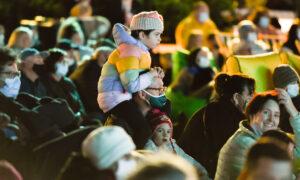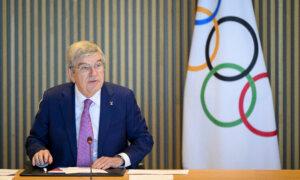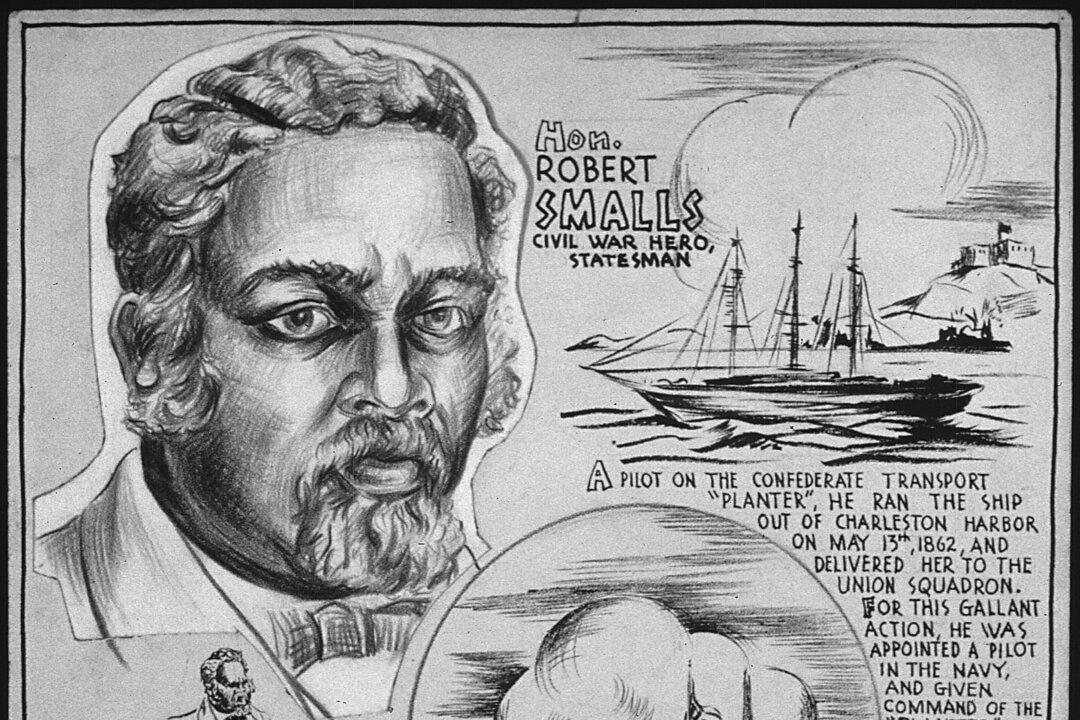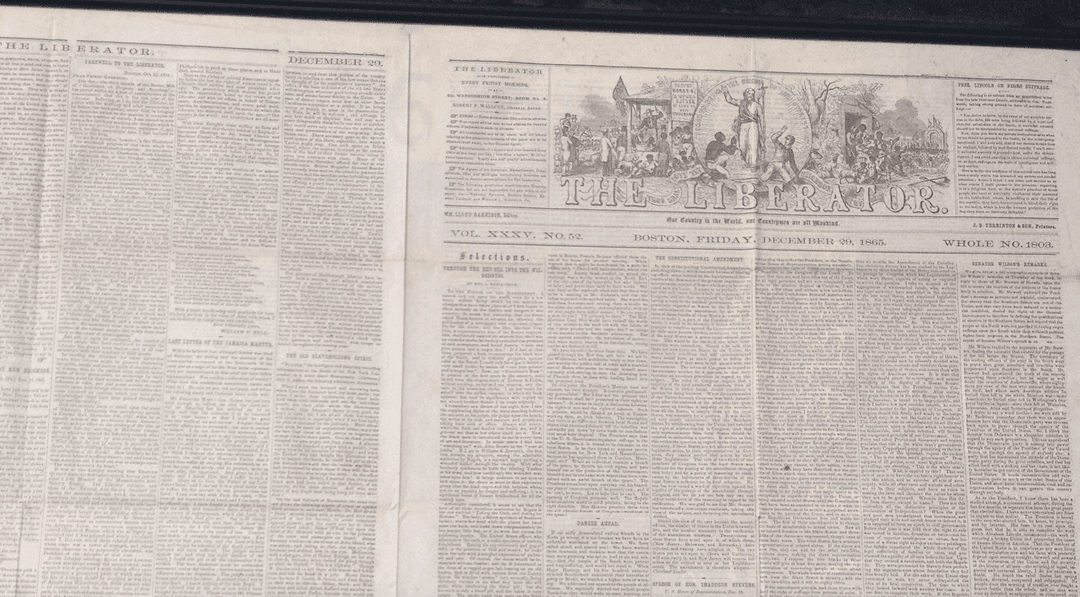Liddell was born in 1902 in Tianjin, China to Scottish missionary parents. He lived in China until he was 5 years old. When his family sailed back to Scotland, his parents enrolled Liddell and his brother in London’s Eltham College, a school for the sons of missionaries. Liddell’s parents then returned to China to continue their missionary work.
Liddell and his brother studied math and science and became involved in sports. Both boys excelled at rugby and were known as the best athletes in the school.
Liddell graduated in 1920 and attended the University of Edinburgh to study Pure Science. While playing on the university’s rugby team, Liddell found his real passion was running.
He competed in the 100 and 220 meter races, and soon the entire country started talking about how fast he was. The Scottish people supported Liddell as the country’s only chance at the time of producing an Olympic champion.
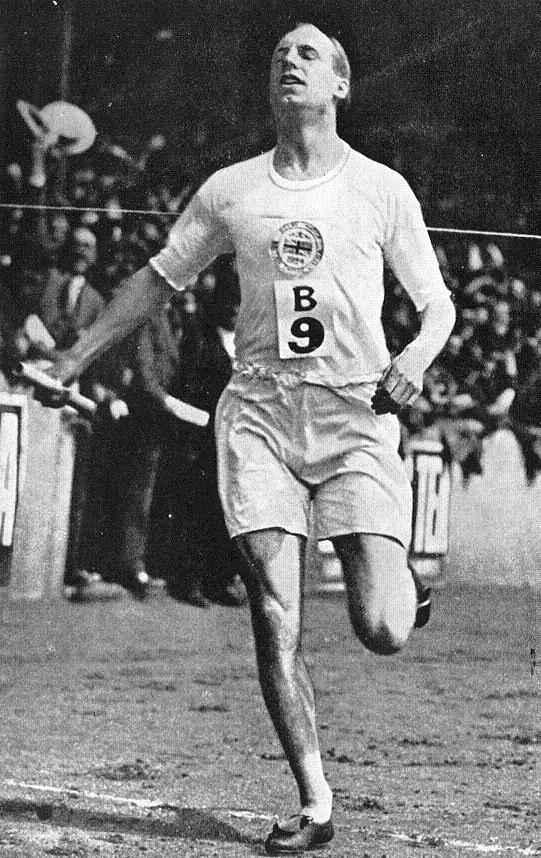
1924 Olympics
When it came time to compete for the 1924 Olympics in Paris, Liddell came to a shocking realization. Three months before the competition, he checked the schedule for the qualifying rounds. There, Liddell noticed that the qualifying round for his best event, the 100-meter race, came on a Sunday. This was a deal breaker for Liddell: He strongly believed that Sunday was a holy day and he refused to compete.The news shocked the nation as media outlets, and even the Parliament, criticized his decision, calling him “unpatriotic.” But Liddell would not negotiate, and on that Sunday delivered a sermon at a church in Paris.
He withdrew from the Olympic 100-meter competition, and trained hard to compete in the 200-meter and 400-meter races. He took the bronze in the 200-meter competition, finishing in 22.2 seconds.
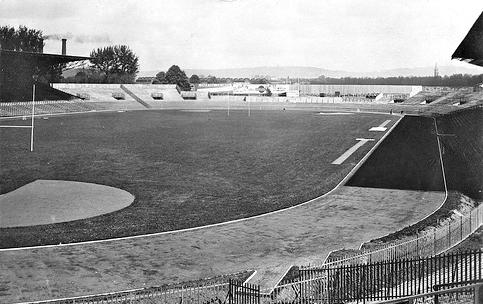
Even though he did well in the 200-meter race, many doubted his ability to keep up the same pace for the 400-meter event. But when the guns fired to signal the start of the 400-meter challenge, Liddell rocketed away from the other competitors.
Towards the end of the race, Liddell’s lead became smaller and smaller, and he knew he would have to push hard to finish ahead. In the final stretch of the race, Liddell threw his head back and started pumping his arms wildly to give him the extra push he needed to win and bring home the gold. In fact, his time of 47.6 seconds was enough to set a new Olympic, European, and British record.
His victory soon made Liddell the talk of the country. On July 12, 1924, The Guardian wrote, “The victory was most popular with the crowd. Liddell’s refusal to run in the preliminary heats of the 100 metres last Sunday because of religious scruples aroused considerable curiosity, which was heightened when it was learned that he will preach in the Scotch church on Sunday. The public here are not accustomed to the idea of a man in holy orders being an athlete, and his splendid win was loudly cheered.”
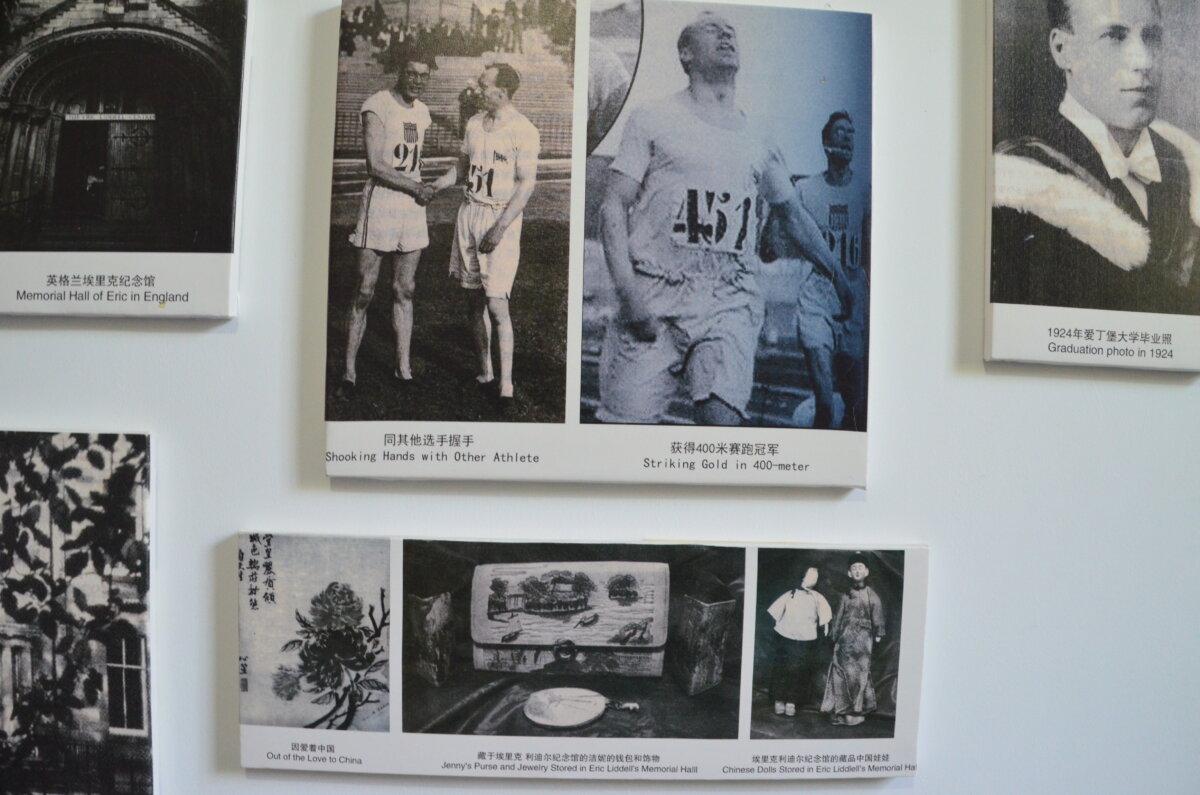
Back to China
But even though he grew famous as an athlete, Liddell knew that his true calling was to return to China and help with his parents’ missionary work. He traveled back to China where he taught math, science, and sports. He married Florence Mackenzie in 1934, who was from Canada but lived in China as a missionary. Liddell taught Sunday school at his father’s church, and helped to build a sports stadium in Tianjin.In 1941, the British warned every citizen to leave China as relations in the region were getting tense before World War II broke out. Liddell sent his pregnant wife and two young daughters back to Canada. Little did he know he would never see his family again. His wife gave birth to a daughter, Maureen, in Canada, who he never had the chance to meet.
In 1943, Liddell was imprisoned in a Japanese internment camp. Even then, he stood strong in his faith and spent the next two years helping the children and elderly in the camp, earning the nickname “Uncle Eric.” A mere five months before the end of World War II, Liddell suddenly grew ill and passed away from a brain tumor at 43.

